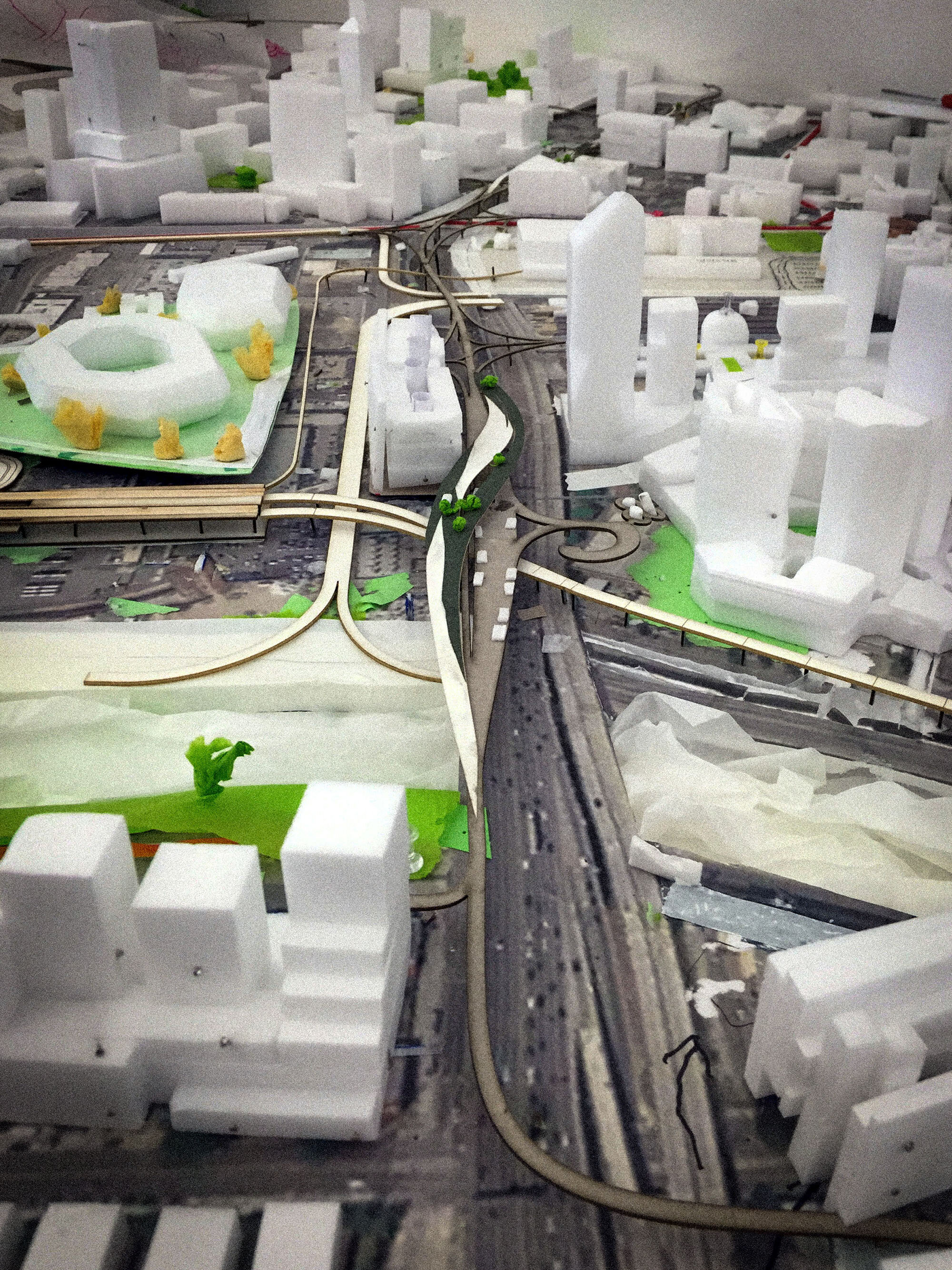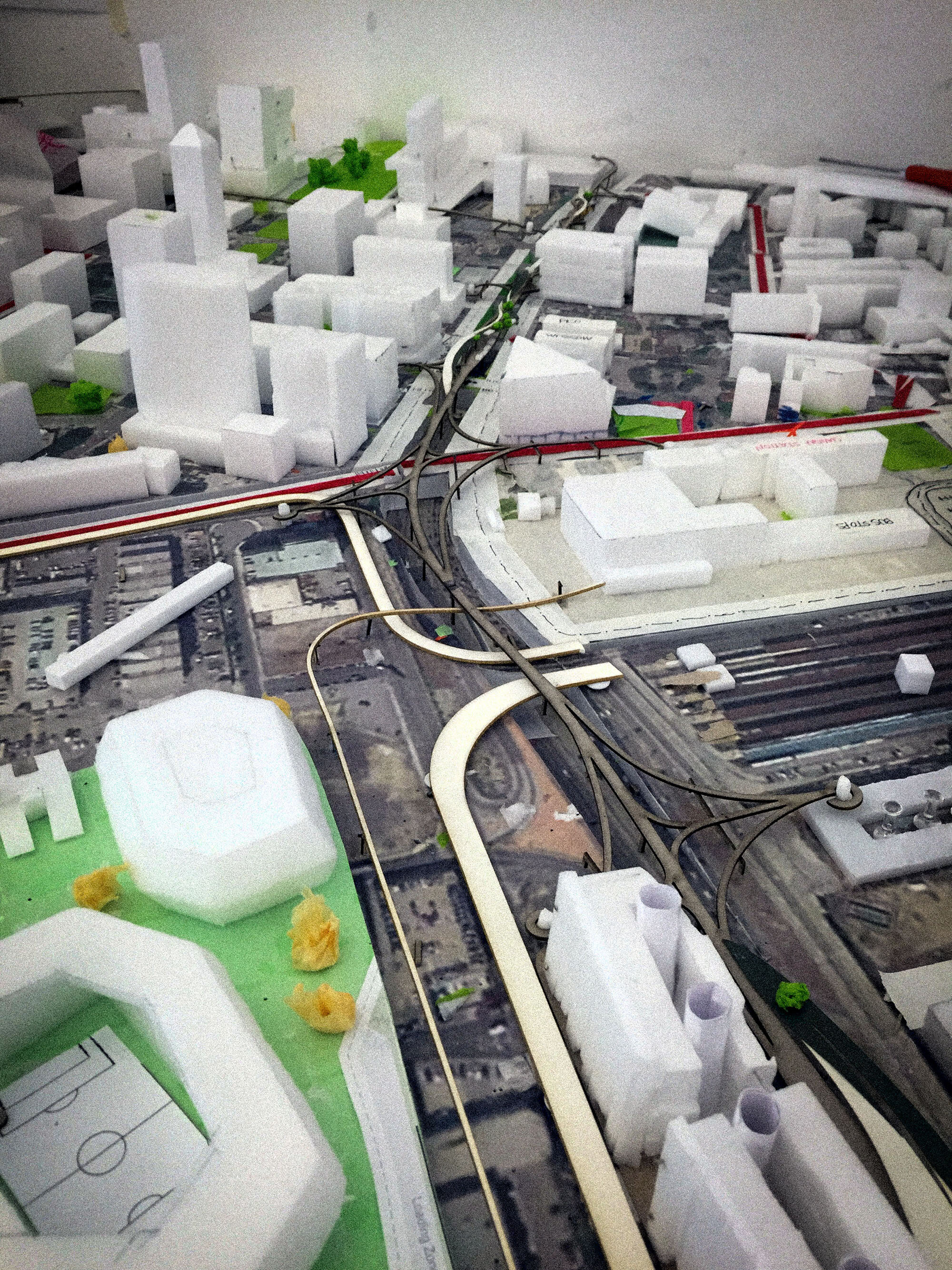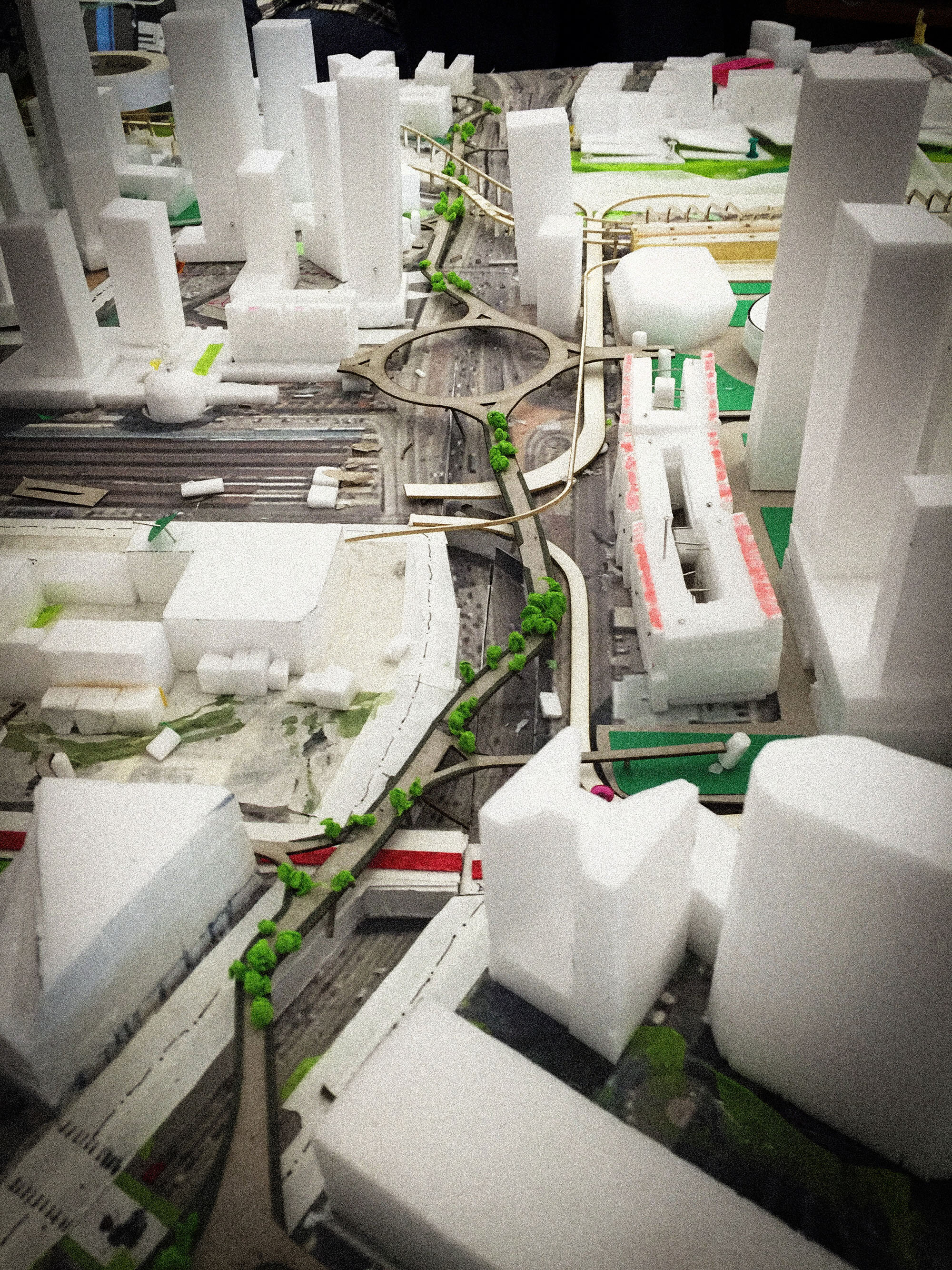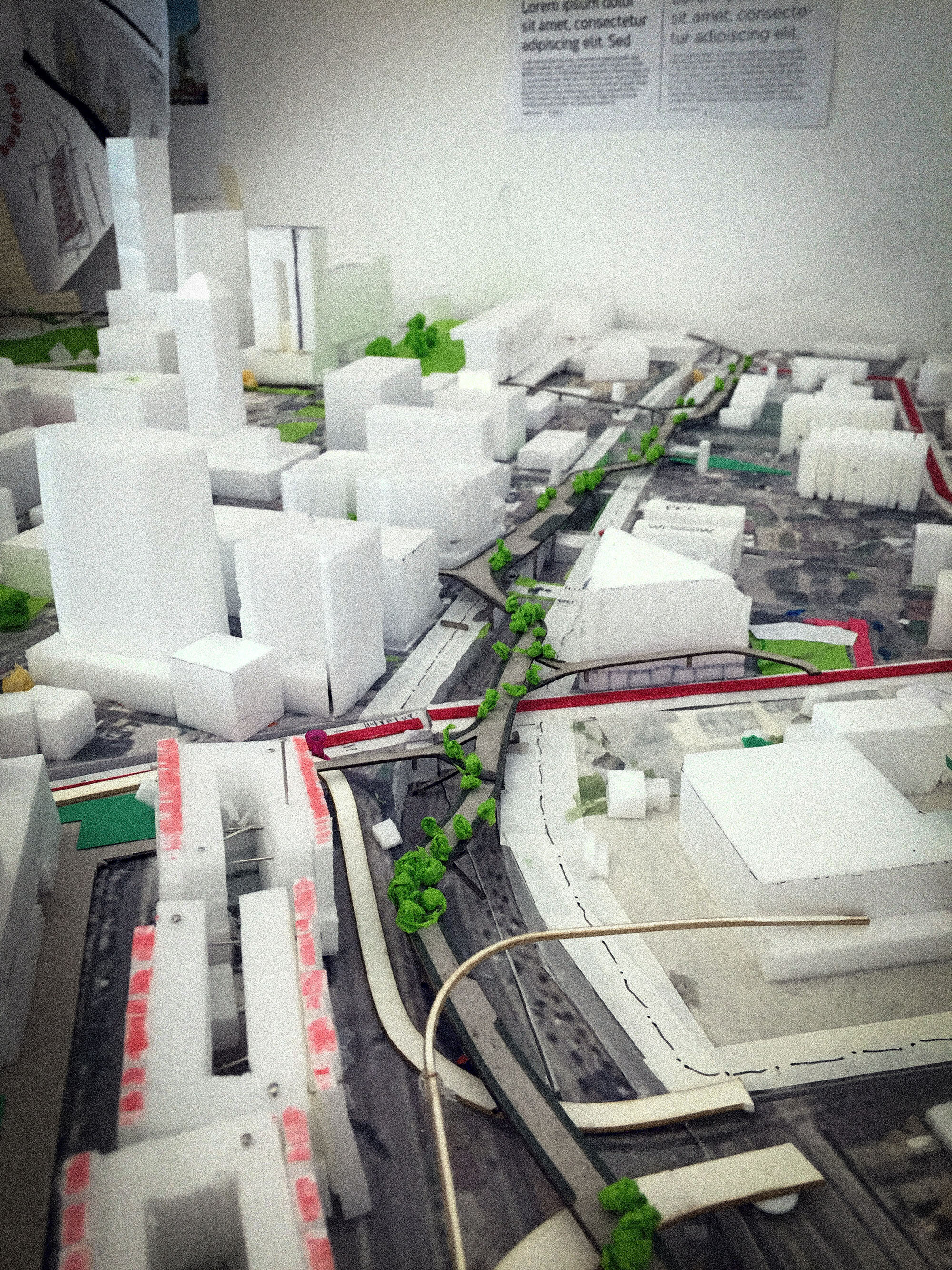THE LINK
“The Eames House is private. Nearly all the good architecture is private…Now that’s one of the things I don’t like about Los Angeles—private cities you can’t get into. And now when you have a place like this which is a sort of good imitation of a terrestrial paradise and the appearance of a free society, then you have guarded gates and so on, it’s like the Balkans before 1914.”
— Reyner Banham, 1972
Los Angeles has long been a city dominated by the car. Ironically, the car and the road system have in many ways severed the city instead of facilitating connectivity. The numerous cultural assets of Downtown Los Angeles and the neighborhoods surrounding it are in close proximity to each other, but they are divided by Highway 101—an immense physical barrier. The Link addresses the current problem by stitching the city together with an elevated pedestrian and bike pathway. It is also a destination in itself.
Process




Final Design

As I was designing The Link, my classmates designed different sites in Los Angeles that would address the issues that the city is facing. They designed a high-speed rail station, low-income housing, a soccer stadium, urban farms, a high-tech hub, and car garages, among other projects. We designed transportation systems and established a no car zone in the Downtown. My project does not only stitch both sides of the highway together, but also has entrances strategically placed to connect it with my classmates’ projects. Future users of the city can park their cars in the car collectors and travel to their destination through The Link. They may choose to traverse this 1-1/4 mile project on bicycles that can be borrowed and dropped off at every entrance to The Link.
PROJECT
The Link
LOCATION
Los Angeles, CA
SCHOOL
USC School of Architecture
CLASS
Architectural Design IV (Arch 402b)
SEMESTER
Spring 2016
INSTRUCTOR
Andrew Liang




